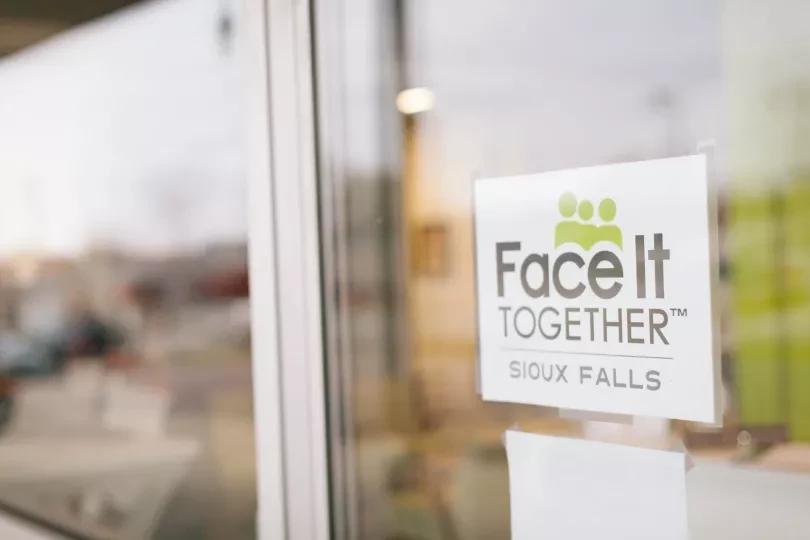‘Alcoholic’ is a misleading label: Jeff’s story

Published Jan. 30, 2020
Jeff Brecht almost always knew he had an unhealthy relationship with alcohol. But because his drinking didn’t line up with his idea of a “typical alcoholic,” he didn’t know what to think.
“My addiction journey was an interesting one because it was very elusive,” he said. “I think even when I was in college I knew that maybe I had a different relationship with alcohol than most people. But I wasn’t really sure. Because I didn’t have a need to drink every day, but when I did drink I did a really good job of it.”
Brecht could go for several months without drinking. He had a successful career in finance, no DUIs and never drank around his children.
As time went on, however, he started experiencing increasingly strong feelings of anxiety and even panic attacks in the days after drinking.
“I would occasionally drink, but I had bouts of just feeling anxious the morning after… So I just wouldn’t drink. That’s the way I handled it. Until the next time, a week later or two weeks later or whatever,” he said. “But when I didn’t drink, those things didn’t happen.”
After one five-day binge in 2015, Brecht was a “wreck.” He was shaky and unusually worried, so he called an acquaintance in recovery, who helped him make an appointment with an addiction specialist in town.
“I wanted to go (see the doctor) so badly, because I wanted to find out what the hell was wrong with me,” he said. ”I was still in rough shape; I wasn’t ok.”
At the end of his appointment, Brecht was diagnosed with mild binge disorder.
“(That diagnosis) was one of the greatest gifts I’ve ever received in my life,” he said. “It was so freeing.”
Framing his unhealthy drinking as a medical condition made complete sense to Brecht; it was the answer to what he had been wondering since college.
“It stopped me in my tracks. And I think because I had so much history and I was looking for a reason to stop this struggle – even though it only happened once a month or once a quarter – it was an epiphany,” he said.
Within a day, Brecht went to his first appointment at Face It TOGETHER.
“I loved it,” he said. “Face It TOGETHER was a safe haven, a support system that educated me back to wellness.”
Having a safe space was important for Brecht’s recovery. He attended two in-person coach appointments a week, in addition to a weekend wellness call.
“I answered that call no matter where I was. (If) I was at my son’s basketball tournament in Minneapolis, I’d leave the gym and I’d answer it,” he said. “I couldn’t wait to hear from Mike. I wanted to tell him, ‘I’m okay.’”
‘Everything is better’
Since that day in 2015, Brecht’s relationships – with loved ones, coworkers and God – have all become stronger.
“Everything is better,” he said. “My relationship with God has gotten exponentially stronger, which is more important than anything to me. (And) my relationship with my wife and my children was blessed by my sobriety so, so much. Abundantly.”
Many of the changes in Brecht’s life, especially at work, can be attributed to an increase in self-respect and inner strength.
“I’m just much happier; I think I’m probably a better leader to my team, you know that humility and that vulnerability," he said. "I listen to them, I think I’m more caring, I think I’m better with my clients. I’m sharper for sure.”
Because he didn’t drink daily, very few people questioned Brecht’s drinking.
“Most people would’ve thought that I didn’t have a drinking problem, and basically I’ve been told that my whole life. And so given the proper tools, I probably could’ve gotten to (recovery) sooner,” he said. “There are a lot of people right, wrong or indifferent that are self-medicating to get through the day – maybe they’re drinking on the job maybe they’re not. But if you do truly care about your people, having some sort of addiction training is more important than having a 401k retirement plan that you match every month. That’s what I believe.”
Get past the shame
The connections Brecht formed shortly after his diagnosis, including with his Face It TOGETHER coach, helped him remain open, honest and vulnerable. That’s his advice for others who meet with a coach: be vulnerable.
“I’d say first of all, it’s okay. And it can be so much better. And you’re okay, but you can be so much better. A better version of you,” he said. “I would tell them, ‘Come here and you won’t be judged, come here and tell your story, come here get your life back so that you can share your life with the people that you love and be the best version of yourself.’”
